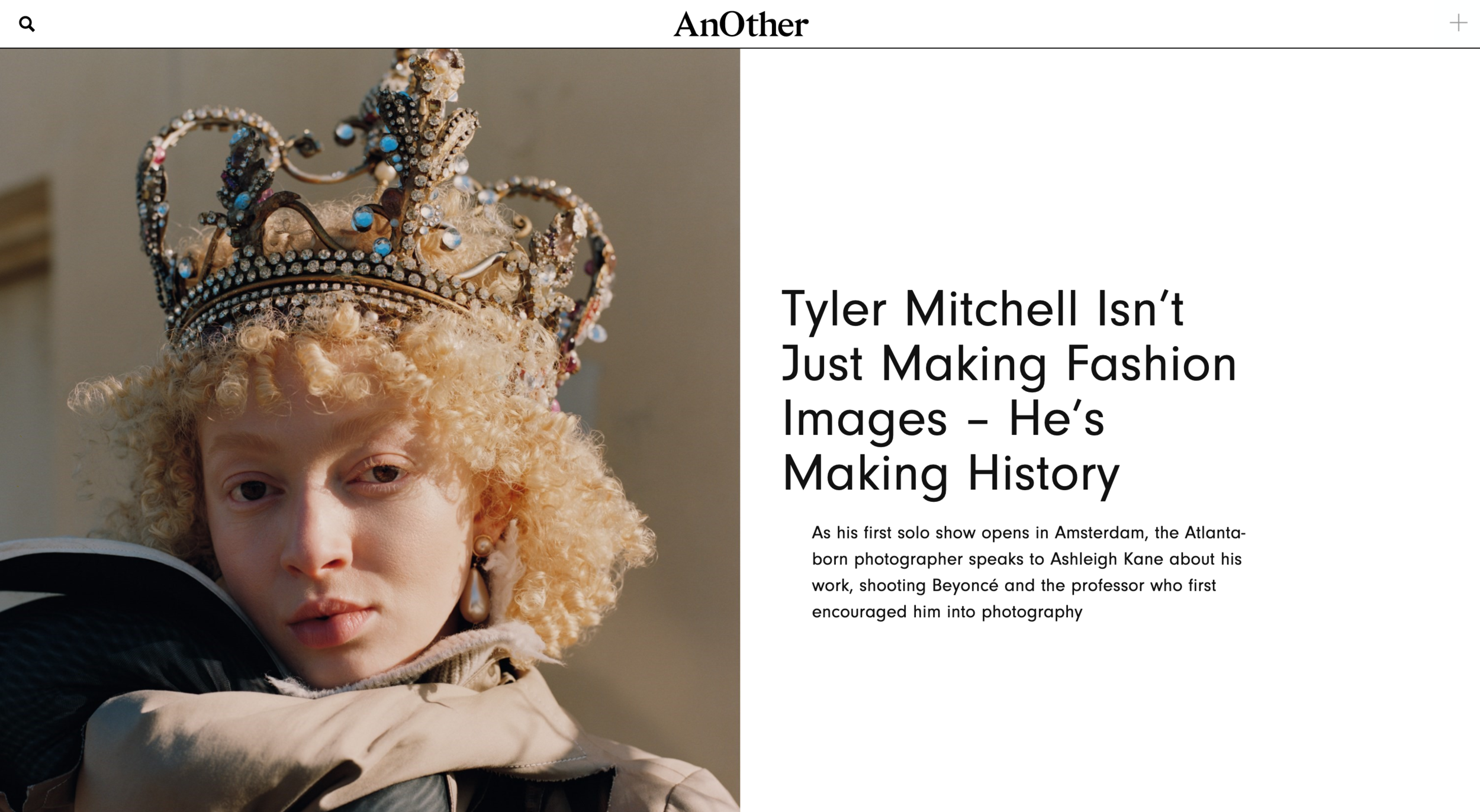Mo: What do you find are some of the most important things you're cognizant of before or during an interview?
Ashleigh: I always approach it as a conversation, like what you're doing with me. I always want to make that person to know I'm engaged in what they're saying. Obviously you have things you want to check off as you're interviewing somebody. You have an angle you're trying to hit or fulfill and that could also change.
Ashleigh: Whenever I interview someone I don't think that's the only time I'm going to interview them. I'm hoping I can interview them time and time throughout their career, so I want to build that trust and collaborate with them; getting them to say what they want to say and putting my input there. I think that's what I'm most aware of.
Mo: What inspires you to approach it as a conversation?
Ashleigh: I think it’s from noticing people who would say at the end of an interview that they really enjoyed it because it was more like a chat or conversation. You want to create a friendliness that way, even with a stranger. I don't go and meet a friend with 20 questions that I’ve already written down. Nothing is more uncomfortable than someone firing questions and not interacting with what you're saying.
Ashleigh: But when I say conversational, I’m not putting my own self in there. You don't want to put yourself too much into that, especially if it's live or a panel since people aren't there to see me; they're there for the other person. You might want to draw more things out of them so you end up relating to them in order to get that empathy.
Ashleigh: My whole thing is if you're pretty much nice to people they'll do what you want them to do. If you go in awkward or not warm then people won't give that back to you. Kindness is the best approach and that happens by coming across as a friend. Also, it's more comfortable for me to do it in that way—to pretend that they're a friend and find something we can relate to one another.
Mo: It's kind of like going on a first date. You don't go into those with that list of 20 questions.
Ashleigh: Yeah, and the things you normally have to ask that person comes under your research, unless you've had conversations with them before. But things can get translated wrong through past interviews where something was taken out of context. Sometimes I've said things to people where they're like, that's not true.
Mo: Do you feel like you set a boundary on the research and information that you consume of a person before you talk to them?
Ashleigh: I like knowing everything! I'm such a sucker for information. My dad would tell me that I would ask so many questions as a kid so I think that stuck with me as an adult. I have that deep idea that I have to fully know someone or a subject.
Mo: It's interesting because of the different approaches people take. One of my favorite podcasts is The Turnaround where Jesse Thorn interviews people who do interviews, like Werner Herzog and Terry Gross. Unfortunately it was only for one season but you get to learn how these individuals approach interviews.
Mo: For instance, Larry King doesn't prepare for interviews. He just talks to the guest. It's funny when you parlay that idea into how photographers make images of prolific figures. Some want to be fully informed about who they're photographing, and some go into the shoot with minimal to no assumptions.
Ashleigh: Yeah, because there's no bias there. I love research even if it isn't utilized in that interview. For someone like Larry King it makes sense because you're on TV and once it's done, it's done. You don't have to really formulate a structure or narrative to create a written piece too, and the celebrities can be PR-trained to say interesting things about themselves.
Ashleigh: For artists, sometimes they don't want to articulate their ideas as much even though they'll agree to an interview. They can even be snobbish if you misinterpret the work or don't understand their work fully. So I think the research is necessary to fully respect the time that person has put into their artistic piece. As an art journalist, it's the least I can do—to come prepared. But also, I'm so scared of people screaming at me, telling me I know nothing! [laughing]
Mo: For me, it's a mix. Most times I don’t do any formal research. But there are times I'll talk to someone who I absolutely have to know as much as possible. There's this one famous photographer I just talked to and they were surprised at one of the questions I asked because it was a deep cut.
Ashleigh: Yeah! I love when people say that. When I had to call John Baldessari and he was like, "Hello?" And I was like, "Hi, John Baldessari! I'm Ashleigh calling from Dazed, I'm here to speak to you about this show that you're doing." I said the show and what the work was, and he was like, "That's not the show I'm showing," and I knew I was 100-percent right, but he wouldn’t agree on it being the show. So I asked him a few questions and he'd say that he's already spoken about this or that before. So I thanked him for speaking and wished him a lovely day. [laughing]
Ashleigh: I emailed his PR and told them that he didn't know that, that was the exhibition currently going on. I mean, he has so many exhibitions, work, and he's in his 80s. [laughing] I was mortified, even though I was right!










